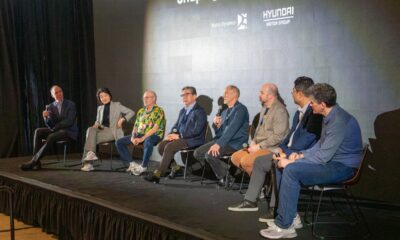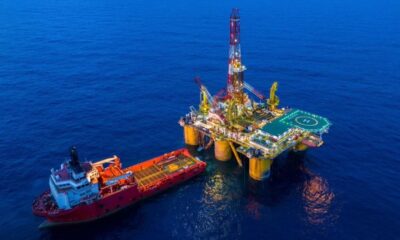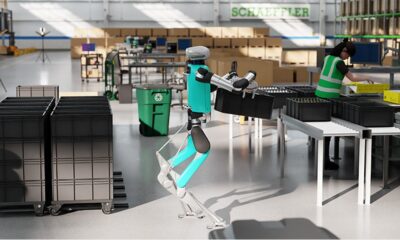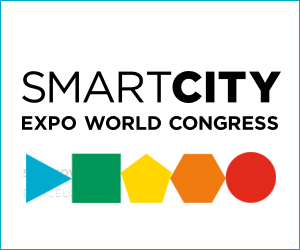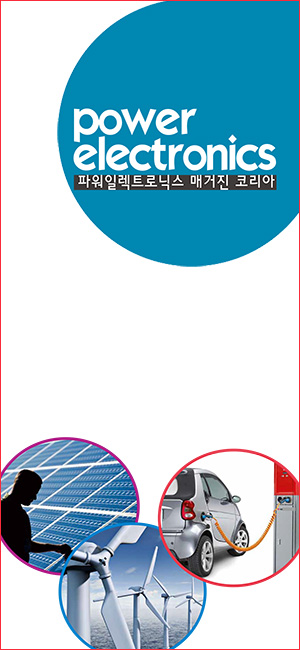EnglishNews
Continental, German Production Sites in Mobile Fluid Systems Area to be Transformed
Between now and late 2025, Continental will reorganize its German hose sites in Waltershausen, Korbach, and Northeim as well as the Oedelsheim/Hann. Münden production network. In this way, Continental will rigorously align the Mobile Fluid Systems (MFS) business area with the requirements of the automobile and commercial vehicle market, which has been undergoing constant change for several years, while at the same time securing its German production facilities as innovation drivers for the business area. “As a development partner and original equipment manufacturer to the automotive industry, we want to use our material and process expertise in such a way that the business area for automotive hoses and lines is ready to face future competition in the field of e-mobility for cars and trucks,” says Philip Nelles, a member of the Continental Board and head of the ContiTech group sector.
The transformation has accelerated enormously due to the current overall economic and political situation. In addition to overcapacities for rubber hoses for combustion engines, another reason for the reorganization is the high cost pressure and the associated need to secure the competitiveness of its hose business. At the same time, new growth opportunities are appearing. For example, battery and fuel cell vehicles require innovative solutions for hose components and complex line systems for thermal management. “In the future, we want to concentrate on these promising applications,” Nelles says.
Strengthening core skills
Within the business area, Continental researches, develops and produces lines, hoses, and clutches at more than 30 locations worldwide for manufacturers of electric, hybrid and combustion vehicles, as well as trucks and busses. Among other things, its products are deployed for thermal management and emissions reduction.
“Germany is perfectly suited as a location at which innovative products for a changing market can be both developed at our research centers and sent for production nearby,” Nelles adds.
In the coming years, the Waltershausen, Korbach and Oedelsheim sites will be developed into centers of excellence for the manufacture of hose connection applications for the auto and commercial-vehicle industry.
Best possible support for employees
Up to 870 jobs in the MFS business area are expected to be impacted by the realignment. In cooperation with worker representatives, Continental is trying to find individual solutions on the internal and external labor market for employees at affected locations. Internally, Continental is very conscious of enabling as many affected employees as possible to move to other areas within the company.
The in-house Institute for Technology and Transformation (CITT) is offering employees tailored courses, seminars and training for targeted qualification. Continental is also working with other companies in the regions around the impacted sites to support employees in searching for new jobs.
The planned reorganization of the Mobile Fluid Systems business area followed talks with worker representatives with the aim of providing perspectives for the relevant locations.
Continental is already investing in the remaining sites in a targeted manner to give them the best possible foundation and capitalize on the growth potential presented by products and applications for other promising industrial sectors.
Information on the measures decided for the different sites
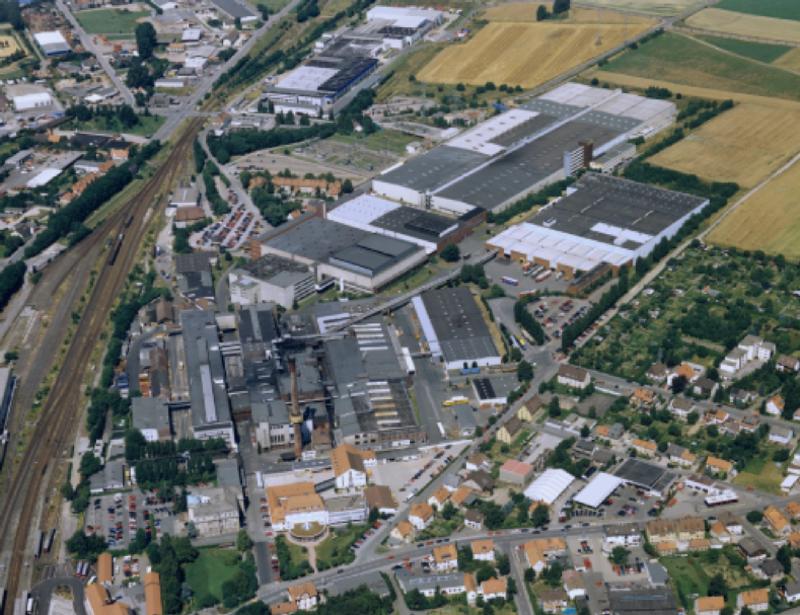
Korbach: Approximately 3,300 people are currently employed at the Korbach site. In addition to a tire plant, three other ContiTech business areas, including MFS, are also located there. The business area is working to further expand expertise in the processing of rubber piece goods. Close ties with the MFS research centers also enhance the business area’s innovativeness. At the Korbach site, Continental is diversifying its product portfolio for applications in various industries, for instance for pump manufacturers. To strengthen its industrial hose business, the company plans to invest EUR 4.5 million in Korbach. Bundled expertise in materials is clearly upgrading the location in the German state of Hesse.

Waltershausen: Waltershausen is what is known as a “zebra location” of the Continental Group. A total of about 1,000 employees produce there for three ContiTech business areas. Among other things, they manufacture rubber compounds, printing blankets for the print industry, manifolds, and air-conditioning hose lines, as well as plastic hoses for the automotive industry. Since 2018, Continental has invested some EUR 8.3 million in Waltershausen. Firstly, approximately EUR 4.3 million was invested in modern mixing technology and additional storage capacity at the site. Approximately EUR 4 million more has been spent on plastic manufacture alone since 2018. Due to the existing expertise, Waltershausen’s role as a center of excellence for plastics processing is being enhanced significantly. As part of the reorganization, air-conditioning hose production will be moved away from Waltershausen. This is expected to affect up to 190 jobs at the site by the end of 2025. At the same time, initial and continuing staff training will continue to be an important building block for the development of the site, which boasts attractive and demanding jobs.

Oedelsheim/Hann. Münden: The previous production network spread across sites 25 kilometers apart is to be merged in Oedelsheim. The sites currently employ a total of about 750 people. Continental will expand the remaining sites in such a way that a significant proportion of the jobs in Hann. Münden can be transferred. Whereas the Oedelsheim site will be underpinned and grow by focusing on silicon manufacture and charge air hoses, the closure of production operations in Hann. Münden will affect a total of about 300-350 of the approximately 560 jobs.

Northeim: In Northeim, more than 1,650 employees currently produce at four ContiTech business areas, including MFS. According to the plans, the manufacture of auto hoses will be phased out by late 2024 due to the technological transformation of the automotive industry. More than 300 jobs are expected to be impacted by the move. The production of conveyor belt systems, elastomer coatings and precision seals as well as molded parts for brakes, steering and axles will remain in Northeim. Approximately 1,350 people will be employed at the site after the measures announced today have been implemented.
In a next step, Continental plans to start a dialog with the respective local employee representatives on the basis of the Framework Social Plan that was approved in March 2022.

모빌리티(Mobility)의 미래 비즈니스 전략을 찾다
- 모빌리티타임즈 (mobilitytimes.net)
-

 Features2개월 ago
Features2개월 ago중국 로봇 개에 대한 국가안보 위협 시나리오.. 미 하원 특위, 유니트리 로보틱스 전면금지 촉구
-

 News2개월 ago
News2개월 ago오토폼엔지니어링, 한국서 ‘AI 기반 디지털 금형 생태계’ 구축 본격화
-
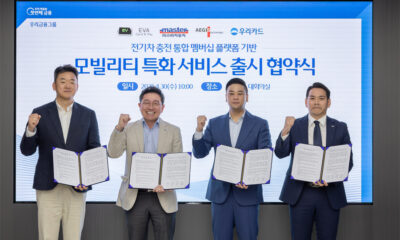
 News2개월 ago
News2개월 ago“카드 한 장이면 끝!”.. 에바씨엔피, 전기차주 위한 ‘꿀템 카드’ 출시
-

 Policy2개월 ago
Policy2개월 ago국토교통부, 창업기업 지원 강화… ‘국토교통 창업지원센터’ 입주기업 모집
-
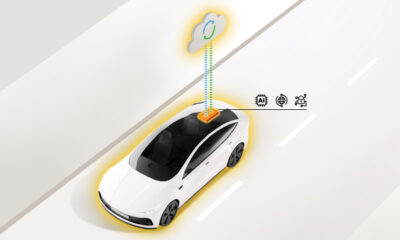
 Products1개월 ago
Products1개월 agoNXP, 2세대 차량용 개발 플랫폼 ‘오렌지박스 2.0’로 SDV 시대 지원
-

 News1개월 ago
News1개월 ago인피니언-한화 NxMD, 자동차 무선 커넥티비티 혁신 위한 전략적 제휴 체결
-
News1개월 ago
엘앤에프, ‘뉴로컬리즘’ 실천하는 대구발 이차전지 소재 기업
-
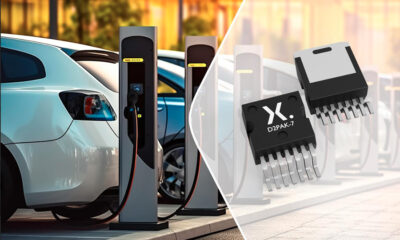
 Products2개월 ago
Products2개월 ago넥스페리아, D2PAK-7 패키징의 업계 최고 자동차 인증 1200V SiC MOSFET 출시





